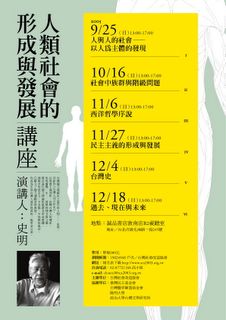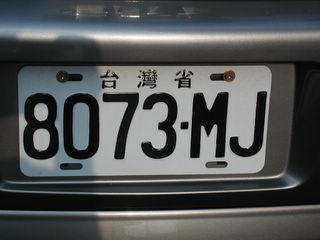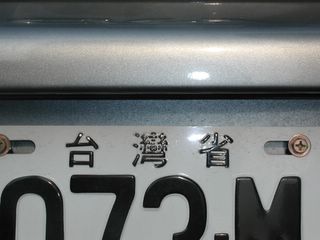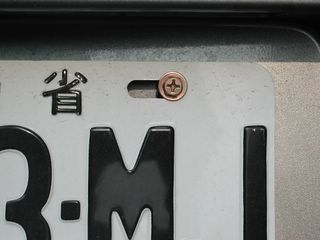I finally saw Lost In Translation for the first time. My friend "A" had seen it before but had fallen asleep watching it. So she thought that she'd like to watch it again just in case there was something she "didn't get" about the movie the first time around.
As I watched, I was reminded of how the interpretation of certain movies is greatly enlightened by an understanding of culture and cultural context. I can see how some people might not be able to completely relate to the feeling of alienness and wonder that the (main characters) Americans Bob Harris (Bill Murray) and Charlotte (Scarlett Johansson) felt in Japan. There's this feeling of disassociation upon becoming instantly illiterate in a foreign country, surrounded by a culture and language one doesn't understand.
This understanding of culture, in this case American culture specifically, can be so integral to appreciating certain movies. It was particularly evident to me when I watched Crash up in Taipei this summer, late one night with some friends. A few of them left to go to bed before the movie was even halfway through. I later found out that one of them, a young woman born and raised in Taiwan, now studying university in Japan, and unable to understand or speak English- left because she thought the movie was boring. It was then that I realized that it would be difficult, if not impossible for her to get much of the movie's significance or nuances, particularly without an understanding of American culture and the state of race relations.
I had heard mixed reviews of Lost In Translation, so I had no expectations. Two things about the movie have made me think.
First is the relationship between Bob and Charlotte that develops over the course of the movie. They are two lonely souls, each feeling in his and her own way, lost and sleepless in Japan. Both are married. Charlotte is at a breaking point in loneliness; she is there with her photographer husband who is contantly away on shoots. Unsurprisingly, she can't seem to talk to him about her feelings of isolation. Bob is a "has been" actor, there alone. He has been flown to Japan to appear in ads for Suntory Whiskey. Staying at the same hotel, these two finally meet in the hotel bar and with both spouses out of the picture, Bob and Charlotte begin their adventures together around Tokyo. They spend several consecutive days together and bond over their feeling of "alienness." Soon they become a source of comfort and familiarity to each other.
It makes me wonder how many people fall for someone (so unlikely) simply because they've been thrown together by circumstances or end up falling for someone due to proximity and/or familiarity. Put another way, it makes me think of that feeling you have when a platonic friendship is right on the cusp of becoming something more because there is a familiarity and trust established, and it could go either way... but then you don't know if it should. Or, there's someone who's always been around and there for you, to pick of the pieces of your life in times of need, whether there's been some major disappointment, or personal setback in your life. Perhaps you find yourself spending more and more time with this certain someone, and one day you look at him or her in a different light. Is it a relationship by default familiarity or proximity or a solid basis of friendship on which to build a relationship?
Throughout the movie I think most viewers will find themselves starting to take sides, rooting for or against Bob and Charlotte getting together.
The other thing I found intriguing was the final scene in which Bob is taking a taxi to the airport to return home. He stops the taxi because he has spotted Charlotte, walking in a crowd of people on the street, wearing a jacket that he lent her (the one she's forgotten to return to him before he left the hotel). He follows her and "says good bye"; while they embrace, Bob leans in and whispers something into Charlotte's ear before they share one final (and their only real) kiss.
"A" and I tried rewinding back to see if we could hear exactly what Bob said to Charlotte before they kiss, but his voice is so muffled that we concluded that this was done on purpose, as if it were a secret to be kept between these two characters. It leaves things up to the imagination of movie viewers. So what might have Bob said to Charlotte?:
"Keep the jacket so that a part of me never has to leave here and you'll never be alone."
"Keep the jacket. I'll miss you. We'll always have Tokyo."
"Just stand here for a moment, like we're the only two people here. Remember this moment and it'll be as if I'm always here with you."
"Nothing happened between me and the redhead, it was a set up to push you away because we were getting too close."
"Gonna make you see. There's nobody else here. No one like you. You're special so special."
Wonder what those of you who have seen the movie think Bob said? I guess I must be a diehard romantic since I didn't offer anything with cynical overtones or interpretations of what Bob might have said to Charlotte.
"A" asked if I ever felt as wide-eyed and curious as Bob appears to be in the opening scenes- as he looks out the taxi cab window at the bright neon lights and billboards of flashing unintelligible Chinese and Japanese characters.
Yes, I do recall feeling that way during the first few months I lived in Taiwan, especially in Taipei and the first time I visited Tokyo. I do believe that now I'm quite accustomed to my surroundings, here in Kaohsiung and Taiwan in general.
But on the way home in the taxi cab tonight, I found myself doing it- gawking and staring out the window at the bright signs and new places- as we drove through far flung parts of Kaohsiung that I'd never seen before.
As I watched, I was reminded of how the interpretation of certain movies is greatly enlightened by an understanding of culture and cultural context. I can see how some people might not be able to completely relate to the feeling of alienness and wonder that the (main characters) Americans Bob Harris (Bill Murray) and Charlotte (Scarlett Johansson) felt in Japan. There's this feeling of disassociation upon becoming instantly illiterate in a foreign country, surrounded by a culture and language one doesn't understand.
This understanding of culture, in this case American culture specifically, can be so integral to appreciating certain movies. It was particularly evident to me when I watched Crash up in Taipei this summer, late one night with some friends. A few of them left to go to bed before the movie was even halfway through. I later found out that one of them, a young woman born and raised in Taiwan, now studying university in Japan, and unable to understand or speak English- left because she thought the movie was boring. It was then that I realized that it would be difficult, if not impossible for her to get much of the movie's significance or nuances, particularly without an understanding of American culture and the state of race relations.
I had heard mixed reviews of Lost In Translation, so I had no expectations. Two things about the movie have made me think.
First is the relationship between Bob and Charlotte that develops over the course of the movie. They are two lonely souls, each feeling in his and her own way, lost and sleepless in Japan. Both are married. Charlotte is at a breaking point in loneliness; she is there with her photographer husband who is contantly away on shoots. Unsurprisingly, she can't seem to talk to him about her feelings of isolation. Bob is a "has been" actor, there alone. He has been flown to Japan to appear in ads for Suntory Whiskey. Staying at the same hotel, these two finally meet in the hotel bar and with both spouses out of the picture, Bob and Charlotte begin their adventures together around Tokyo. They spend several consecutive days together and bond over their feeling of "alienness." Soon they become a source of comfort and familiarity to each other.
It makes me wonder how many people fall for someone (so unlikely) simply because they've been thrown together by circumstances or end up falling for someone due to proximity and/or familiarity. Put another way, it makes me think of that feeling you have when a platonic friendship is right on the cusp of becoming something more because there is a familiarity and trust established, and it could go either way... but then you don't know if it should. Or, there's someone who's always been around and there for you, to pick of the pieces of your life in times of need, whether there's been some major disappointment, or personal setback in your life. Perhaps you find yourself spending more and more time with this certain someone, and one day you look at him or her in a different light. Is it a relationship by default familiarity or proximity or a solid basis of friendship on which to build a relationship?
Throughout the movie I think most viewers will find themselves starting to take sides, rooting for or against Bob and Charlotte getting together.
The other thing I found intriguing was the final scene in which Bob is taking a taxi to the airport to return home. He stops the taxi because he has spotted Charlotte, walking in a crowd of people on the street, wearing a jacket that he lent her (the one she's forgotten to return to him before he left the hotel). He follows her and "says good bye"; while they embrace, Bob leans in and whispers something into Charlotte's ear before they share one final (and their only real) kiss.
"A" and I tried rewinding back to see if we could hear exactly what Bob said to Charlotte before they kiss, but his voice is so muffled that we concluded that this was done on purpose, as if it were a secret to be kept between these two characters. It leaves things up to the imagination of movie viewers. So what might have Bob said to Charlotte?:
"Keep the jacket so that a part of me never has to leave here and you'll never be alone."
"Keep the jacket. I'll miss you. We'll always have Tokyo."
"Just stand here for a moment, like we're the only two people here. Remember this moment and it'll be as if I'm always here with you."
"Nothing happened between me and the redhead, it was a set up to push you away because we were getting too close."
"Gonna make you see. There's nobody else here. No one like you. You're special so special."
Wonder what those of you who have seen the movie think Bob said? I guess I must be a diehard romantic since I didn't offer anything with cynical overtones or interpretations of what Bob might have said to Charlotte.
"A" asked if I ever felt as wide-eyed and curious as Bob appears to be in the opening scenes- as he looks out the taxi cab window at the bright neon lights and billboards of flashing unintelligible Chinese and Japanese characters.
Yes, I do recall feeling that way during the first few months I lived in Taiwan, especially in Taipei and the first time I visited Tokyo. I do believe that now I'm quite accustomed to my surroundings, here in Kaohsiung and Taiwan in general.
But on the way home in the taxi cab tonight, I found myself doing it- gawking and staring out the window at the bright signs and new places- as we drove through far flung parts of Kaohsiung that I'd never seen before.







